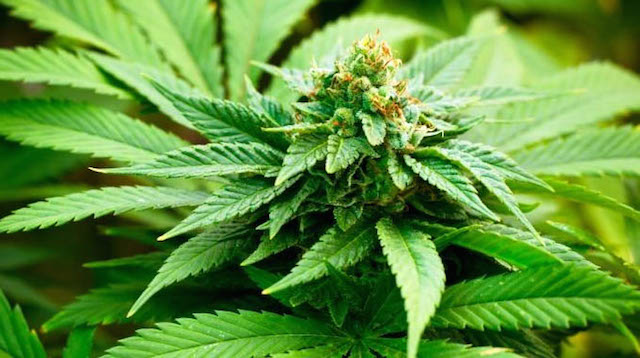by Theodore Dalrymple

It’s curious how people’s beliefs about matters of fact often follow their political opinions, rather than the other way around. Those who believe in an active regulatory state are much more likely to believe in man-made global warming than those who want to reduce the role of the state to a minimum—though whether such warming exists or not is, or ought to be, a matter of empirical fact. Strictly speaking, it would be possible to believe in man-made global warming without subscribing to the need for close regulation; but, in practice, political and empirical beliefs usually go together.
It is the same with cannabis. Those in favor of legalization—or liberalization—tend to emphasize its benefits and deny its harms; those against emphasize the harms and deny the benefits.
A report just published by the National Academies of Science, Engineering and Medicine tries dispassionately to assess the evidence for the health benefits and harms of cannabis and cannabinoids (the active chemicals in marijuana). It steers clear, quite rightly, of polemics: for, as Hume argued, no statement of value is to be derived from statements of fact. Where the evidence is not yet strong, or where there is none, the report says so.
Apart from the pleasures and displeasures of cannabis (for cannabis can cause both) what, according to the report, are its principal harms and benefits? The report finds good evidence for the following benefits: cannabis or cannabinoids can reduce pain in cancer patients, reduce the vomiting caused by chemotherapy for cancer, and reduce self-reported spasticity in patients with multiple sclerosis. Similarly, the report says that there is good evidence for the following harms: cannabis or cannabinoids can increase the risk of motor accidents and the development of schizophrenia or other psychoses. Rather fatuously, it seems to me, the report says that those who take cannabis are at greater risk of developing cannabis-dependency. This is a bit like saying that if you never drink alcohol you will never become an alcoholic.
Does any of this advance the argument for or against legalization? I don’t think so. That cannabinoids should be treated as ordinary medications has always seemed to me reasonable. Of course, when given as medicine, the fun is rather taken out of them: there is no longer any thrill of the illicit. But if cannabinoids relieve unpleasant symptoms, it would be wrong to withhold them.
The question of legalization—or liberalization—is complex, and there is no decisive argument on either side. Is the pleasure of 100 men equal to the suffering of one additional psychotic or one extra road fatality (assuming that legalization increases consumption and creates one additional psychotic or road fatality per 100 additional consumers)? I don’t see that there is a way of reducing the two sides of the equation to a common measure, and therefore reasonable people might disagree. Another question in our society seems to be, increasingly, whether they will agree to disagree civilly.
First published in City Journal.
- Like
- Digg
- Del
- Tumblr
- VKontakte
- Buffer
- Love This
- Odnoklassniki
- Meneame
- Blogger
- Amazon
- Yahoo Mail
- Gmail
- AOL
- Newsvine
- HackerNews
- Evernote
- MySpace
- Mail.ru
- Viadeo
- Line
- Comments
- Yummly
- SMS
- Viber
- Telegram
- Subscribe
- Skype
- Facebook Messenger
- Kakao
- LiveJournal
- Yammer
- Edgar
- Fintel
- Mix
- Instapaper
- Copy Link









